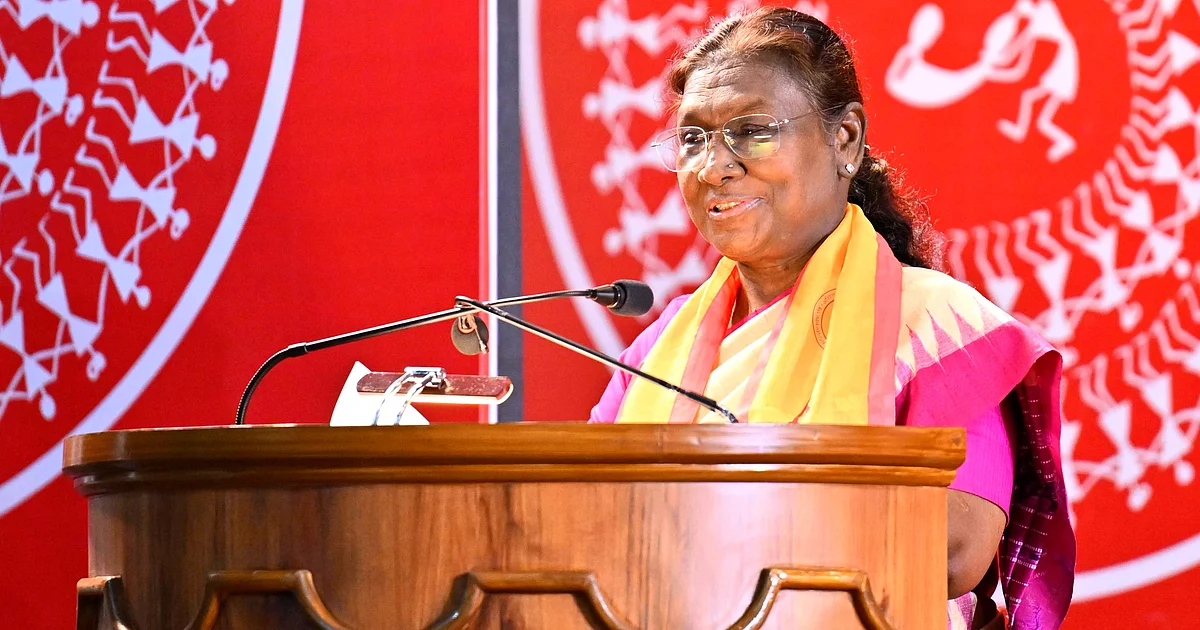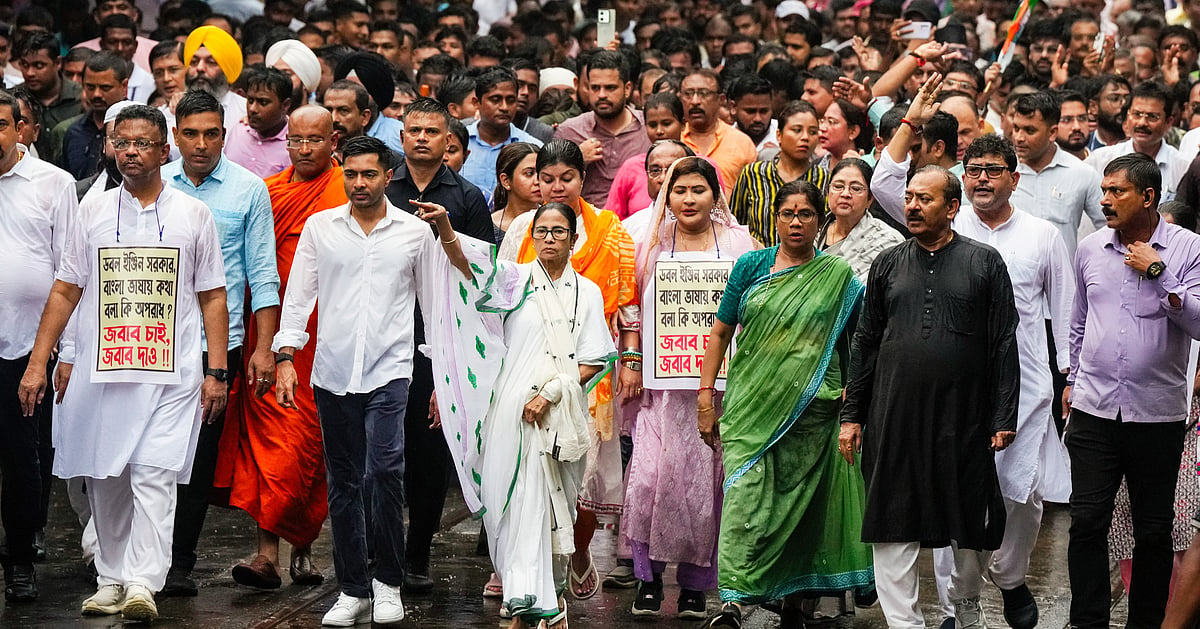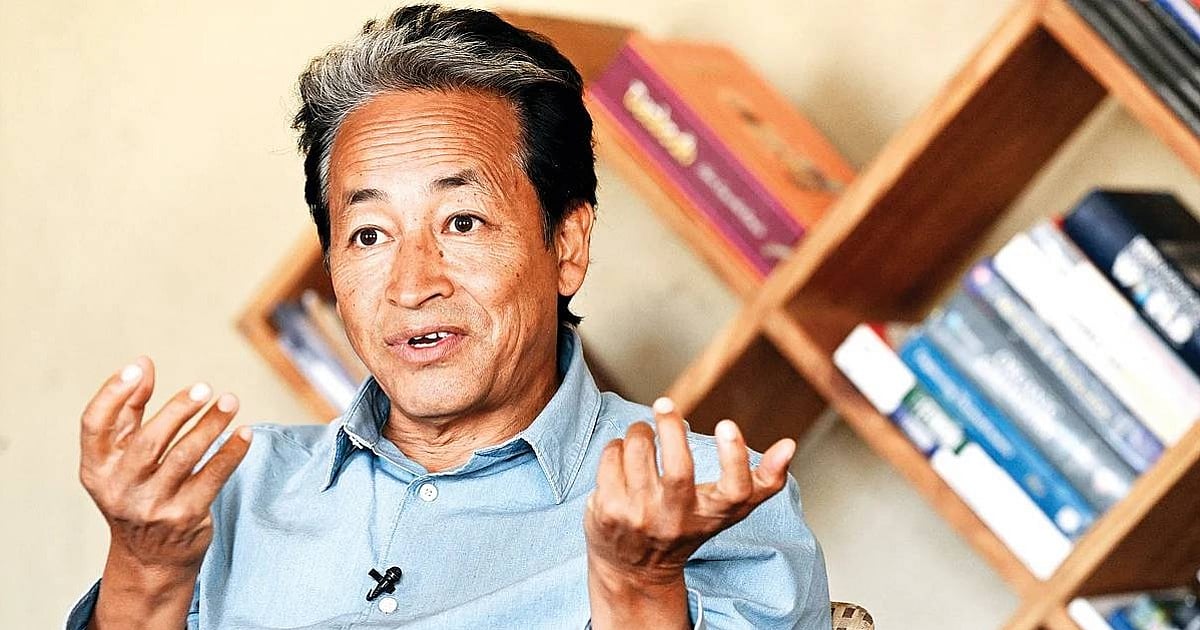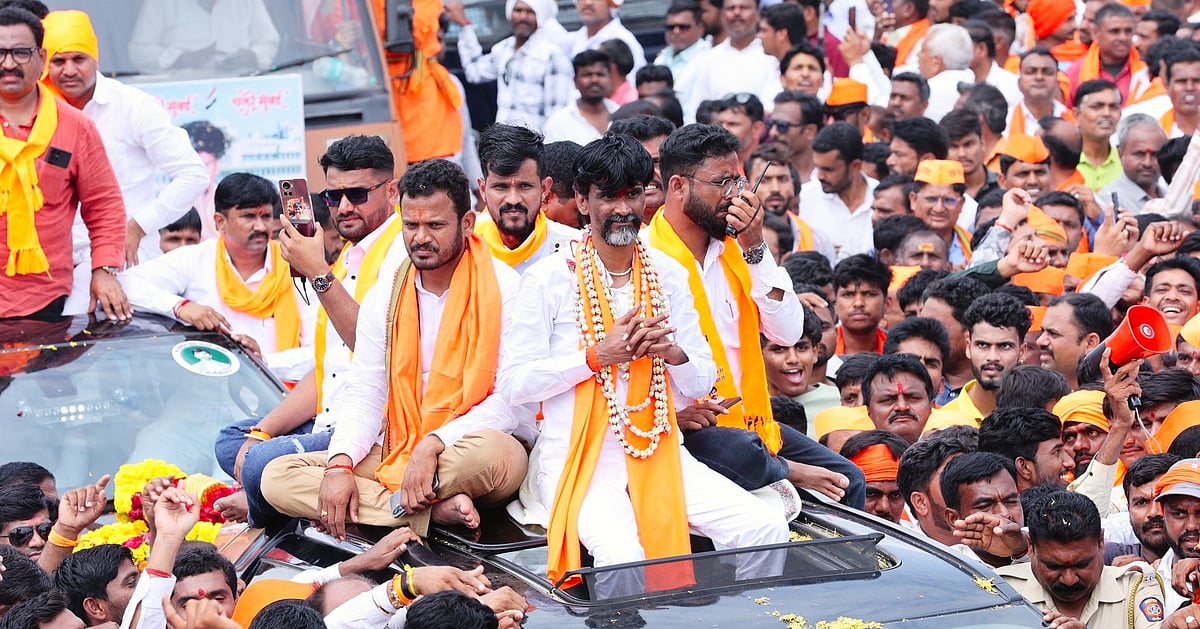National News
SC GUV agrees to examine 14 questions of Prez Murmu on the deadline for prez

The following President’s questions are:
* What are the constitutional options before a Governor when a bill is introduced under Article 200 of the Constitution of India?
* Is the Governor bound by the help and advice of the Council of Ministers, using all the options available with them when a bill is presented to them under Article 200 of the Constitution of India?
* Is the practice of constitutional discretion by the Governor under Article 200 of the Constitution of India?
* Article 361 of the Constitution of India is a full bar to review judicially in relation to the functions of the Governor under Article 200 of the Constitution of India?
* In a constitutionally prescribed time frame and absence of methods of practicing powers by the Governor, can the time -limit be imposed and the governor is determined by the Governor through judicial orders for the practice of all powers under Article 200 of the Constitution of India?
* Is the practice of constitutional discretion by the President justified under Article 201 of the Constitution of India?
* In a constitutionally prescribed timeline and absence of the method of practice by the President, can the deadline be imposed and under Article 201 of the Constitution of India, the President’s method of exercise through judicial orders for the practice of conscience is determined by the President?
* In the light of the Constitutional Plan that controls the powers of the President, the President needs to consult the Supreme Court through a reference under Article 143 of the Constitution of India and the Governor reserves the Bill for the consent of the President or otherwise?
* Are the Governor and President’s decisions respectively under Article 200 of the Constitution of India and Article 201, respectively, a platform in the law coming under the law is justified in the past? Is it acceptable for the courts to judge the content of a bill, in any way, before the law is enacted?
* Can constitutional powers and orders of the President/Governor/the orders be replaced in any way under Article 142 of the Constitution of India?
* Has a law implemented by the State Legislature without the assurance of the Governor given under Article 200 of the Constitution of India?
* In view of provisions for Article 145 (3) of the Constitution of India, is it not mandatory for any bench of this court to decide whether there is a question involved in the proceedings before such nature which includes sufficient questions of law as the interpretation of the Constitution and to refer to a minimum five judges to refer to a bench of five judges?
* … (are) The powers of the Supreme Court under Article 142 of the Constitution of India are limited to procedural law or matters of Article 142 of the Constitution of India, which are spread to issue direction/passing orders, which are inconsistent with the current original or procedural provisions of the Constitution or law?
* Does the Constitution stop any other jurisdiction of the Supreme Court to resolve disputes between the Central Government and the State Governments through a suit under Article 131 of the Constitution of India?
The April 8 decision of the Supreme Court set a time -line for all the governors to work on the bills passed by the state assemblies and ruled that the Governor has not made any discretion in the practice of works under Article 200 of the Constitution, which is in relation to any bill presented to them and must compulsorily follow by advice given by the councils.
It states that the state governments can directly contact the Supreme Court if the President sent the bill sent by the Governor for consideration.
Justice JB Pardwala and R. A bench in Mahadevan stated that “the governor’s personal dissatisfaction, political campaign or any other external or irrelevant views” reserved a bill on the basis of the constitution, strictly impregnable by the constitution and would be liable to set separately on that ground alone.
National News
A toxic story now staring at Bengalis everywhere

Islam, head of the welfare board of migrant workers of the state, has also made the issue wider compared to party politics. He said, “Anti-Bengali forces will not leave anyone, whether it is a member of the Matua, Rajbanshi, or a indigenous community,” he warned, urged solidarity in communities.
For many people, these incidents echo a chronic enmity. The ‘Bongal Kheda’ campaign of Assam in the 1960s targeted Bengalis for expulsion. In 2018, ULFA militants killed five Bengali Hindu women in Tinsukia. Now what is different is the reach of the slur: from the villages of Odisha to the hotel counters in Noida, from Nirodh camps in Assam to the streets of Kolkata.
Nobel Prize winner Amtya Sen has called this trend “unfortunate”, emphasizing that the Constitution gives every Indian the right to live and work anywhere in the country. The Bengal unit of the Congress has appealed to the Governor of Haryana to protect workers in an industrial hub like Paippat. Nevertheless, this assurance has been determined against the backdrop of fresh insults and violence.
Menak’s humiliation, Besra’s beating, sealdah attack, and the incident of Noida Hotel is united, with which the ‘Bangladeshi’ tag is thrown. It is a word that collapses identity, eradicates citizenship, and changes the simple task of speaking someone’s mother tongue in a responsibility.
For Bengalis who migrate to work or study, the results are Starks: they not only carry their belongings, but also the risk of having branded outsiders. For those people in Kolkata, the shock is still sharp – that in their own capital, once a bias imported from elsewhere now finds a house.
India’s pluralism has always rested on its languages, enrich the identity of each republic. To make Bengali – Language spoken by more than 100 million in India alone – a synonym of foreignliness is to highlight that cloth.
The resistance is stirring that the Menak refuses to back down, and to formally condemn these attacks to condemn these attacks. Nevertheless, the firm question of ‘Bangladeshi’ story from Noida hotels to Kolkata markets is a cool question: Can India save its citizens from turning into strangers in their land?
With PTI and media input
National News
Sonam Wangchuk accused the strategy of ‘Banana Republic’ as the authorities retrieved the Unive. land

Two days ago on 31 August, Ladakhi Climate activist and teacher Sonam Wangchuk posted a video on X, which confirmed that the local officials were targeting their Himalayan Institute of Alternative Teaching (HIL) by canceling the lease on the land allotted to the university seven years ago.
Describing the move as a sign of ‘Banana Republic’ rule, Wangchuk said that the Ladakh administration had notices that the government would show that the government would take back the land and demolish the premises built in five years. He questioned the time of this action, given that it did not happen in the last six years, but in October there was a coincidence with the upcoming Hill Council elections.
Wangchuk said, “Ladakh’s Hill Council promised the sixth schedule security measures in its last manifesto, but now they want to win the election without fulfilling that promise. I will not let this happen to the people of Ladakh,” Wangchuk said.
He alleged that from arrests to threats ranging from arrest to cancellation of land lease, and claimed that the authorities were now considering including the ED (Enforcement Directorate). Wangchuk welcomed an ED investigation, saying that it would highlight the work of eight years of the institute without salary and their personal financial contribution.
Wangchuk said that while Hial enjoys tax exemption, he himself pays income tax as a service for the nation. He also claimed that half a million rupees have been donated to the Ladakh UT government in its formation.
Climate activist attracted national attention with him Indefinite hunger strike In March 2024, when he began talks between leaders of Civil Society of Ladakh and Union Ministry of Home Affairs (MHA) when he came to a dead end of constitutional security measures for Ladakh.
Putting the issue forward, he and hundreds of followers also marched a leg for Delhi, forcing MHA to resume Ladakh dialogue in December 2024, although they remain inconclusive.
National News
Fadnavis ends rapidly after Jarang

Maharashtra Chief Minister Devendra Fadnavis on Tuesday, while facing the move of activist Manoj Zerennge to call his five -day fast on the demand of Maratha quota, said the government got a solution in the interest of the Maratha community.
Speaking to reporters in Nagpur, Fadnavis said that his government always focuses on the welfare of the Maratha community.
Jarang, who started his hunger strike on August 29, closed the protest on Tuesday afternoon when the Maharashtra government accepted most of its demands, including giving certificates of eligible Maratha Kunbi caste, which would make them eligible for reservation benefits available to other backward classes (OBCs).
The 43-year-old activist accepted a glass of fruit juice introduced by senior BJP minister Radhakrishna Vicky Patil, who heads the Cabinet Sub-Committee on Maratha reservation at Azad Maidan in South Mumbai, who mark the end of their fast.
-

 IPL3 months ago
IPL3 months ago‘Any nahhi numba hai’: Furious MS Dhoni loses cool, CSK shouts at players – Watch. Cricket news
-

 Sports3 months ago
Sports3 months ago‘Is MS Dhoni fit or not?’ Cricket news
-

 IPL3 months ago
IPL3 months agoExplained: Why Punjab Kings will get two opportunities to reach IPL 2025 final
-

 IPL3 months ago
IPL3 months agoAnil Kumbal on Shubman Gill: ‘Captaining India is different from the captaincy of a franchise’. Cricket news
-

 IPL3 months ago
IPL3 months agoIPL 2025: Hardik Pandya hit the unique ‘Triple Century’ in T20S.
-

 IPL3 months ago
IPL3 months ago‘No, you can’t take it …’: Shreyas Iyer’s bold statement. Cricket news
-

 National News3 months ago
National News3 months agoIndian Youth Congress started fellowship program for young lawyers
-

 Sports3 months ago
Sports3 months agoHow Rohit Sharma’s bad form with BAT is damaging Mumbai Indians’ IPL 2025 campaign
